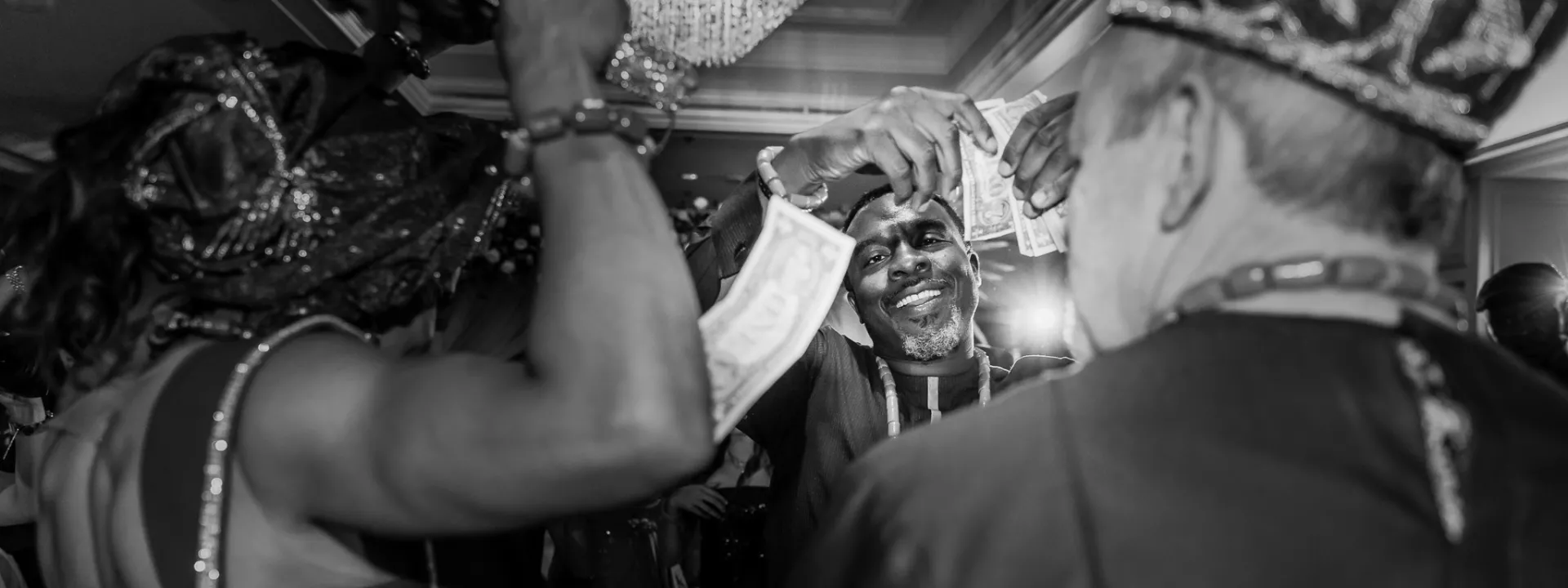Erika Bowers of Erika’s Elegance Weddings and Events has been a wedding planner for more than 20 years in Los Angeles and surrounding areas. She is especially adept at incorporating culture and traditions into weddings. “Many of my clients come from diverse cultures,” says Bowers, “and I get so excited when they incorporate cultural elements.” Here are seven of her favorite ways to honor her clients’ heritages.
Published:
1. Fashion Forward
One of the most common ways to incorporate culture is through fashion. Many modern brides often choose to wear a bridal gown for part of the event and then change into traditional attire for another part of the celebration. For example, Bowers often has brides who wear a wedding gown for their ceremony and then for the reception, they change into traditional wear, such as an ao dai or a hanbok. Fabric and color are another creative way to instill cultural style into an event, whether it’s by setting a dress code or encouraging guests to wear their traditional garb.
A custom gele, designed by one of Bowers’ Nigerian clients. The gele is a head tie worn primarily by women in Nigeria and West Africa. Tying the gele requires various specific techniques, so Bowers helped the bride find the ideal vendor. “It was beautiful seeing all the women send in pictures of how they wanted their gele tied,” says Bowers.
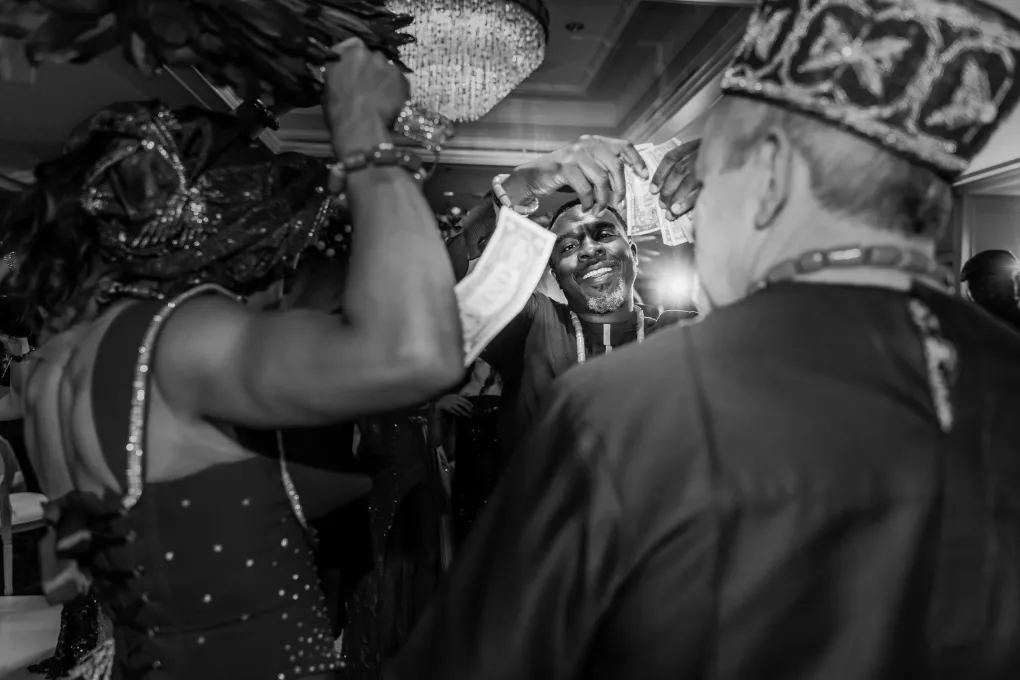
2. The Best Accessory
Cultural jewelry is a meaningful way to incorporate tradition, symbolism and personal history, notes Bowers. “If the couple comes from different cultural backgrounds, incorporating jewelry from both sides can be a way to honor and celebrate each other’s heritage and creates a unique blend of tradition and symbolism,” she says.
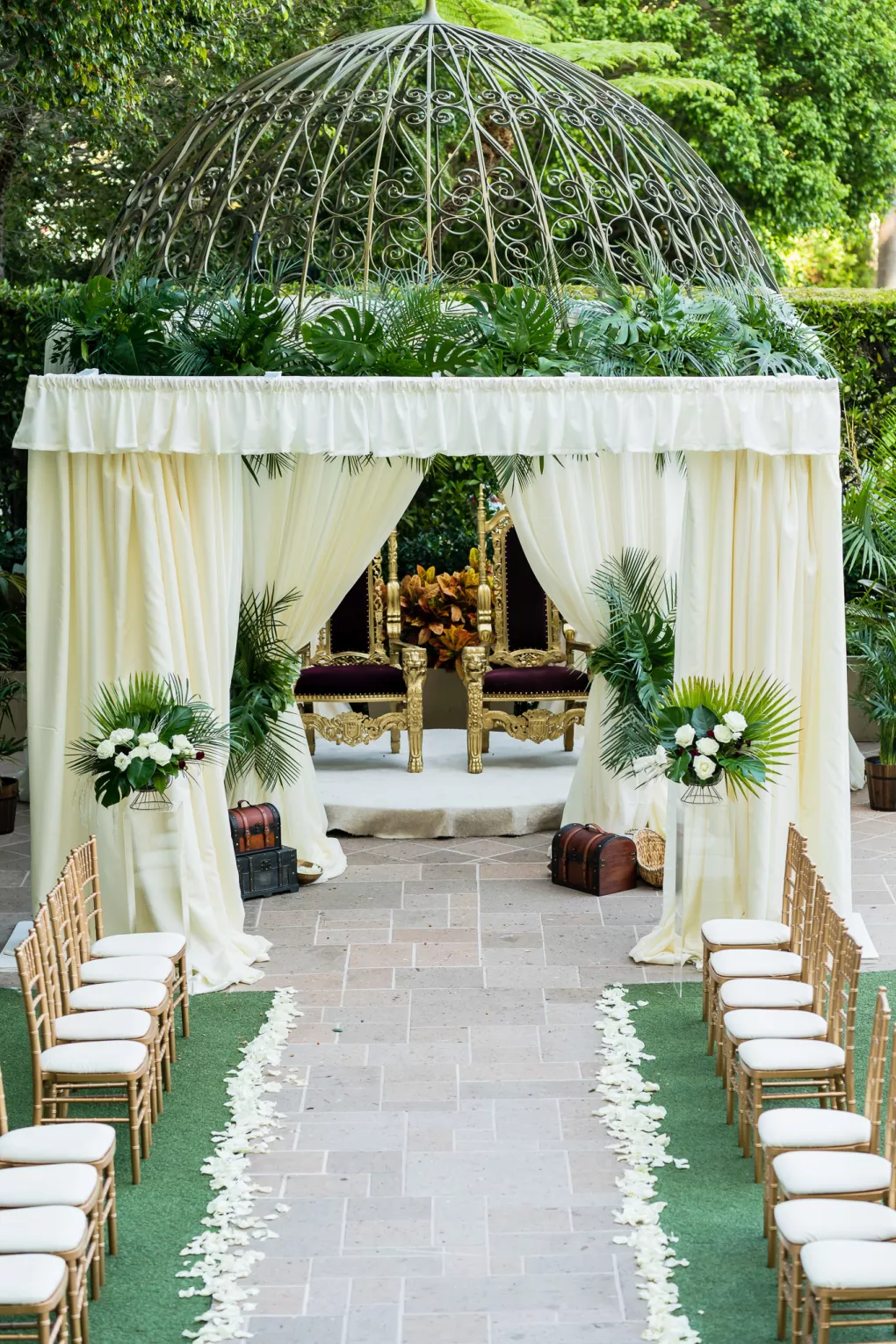
Staying true to Nigerian tradition, this design ensured that a place had been created in which the groom could hide from his bride during the igba nkwu nwanyi ceremony. In this ceremony, the bride carries wine while searching for her husband-to-be. Upon finding him, she offers him the wine, which he accepts by taking a drink.
3. By Design
Bring the country into your design! This can be done in a variety of ways, such as incorporating texture, color, fabrics, florals and more. “When we designed our Nigerian wedding, we included elements such as traditional wooden bowls for the florals and décor accents, and traditional fabric on the gift table,” says Bowers. “We also pulled in other wooden textures, greenery and regal elements.” And don’t forget the entertainment! Dancers or musicians are a winning way to incorporate culture and engage your guests.
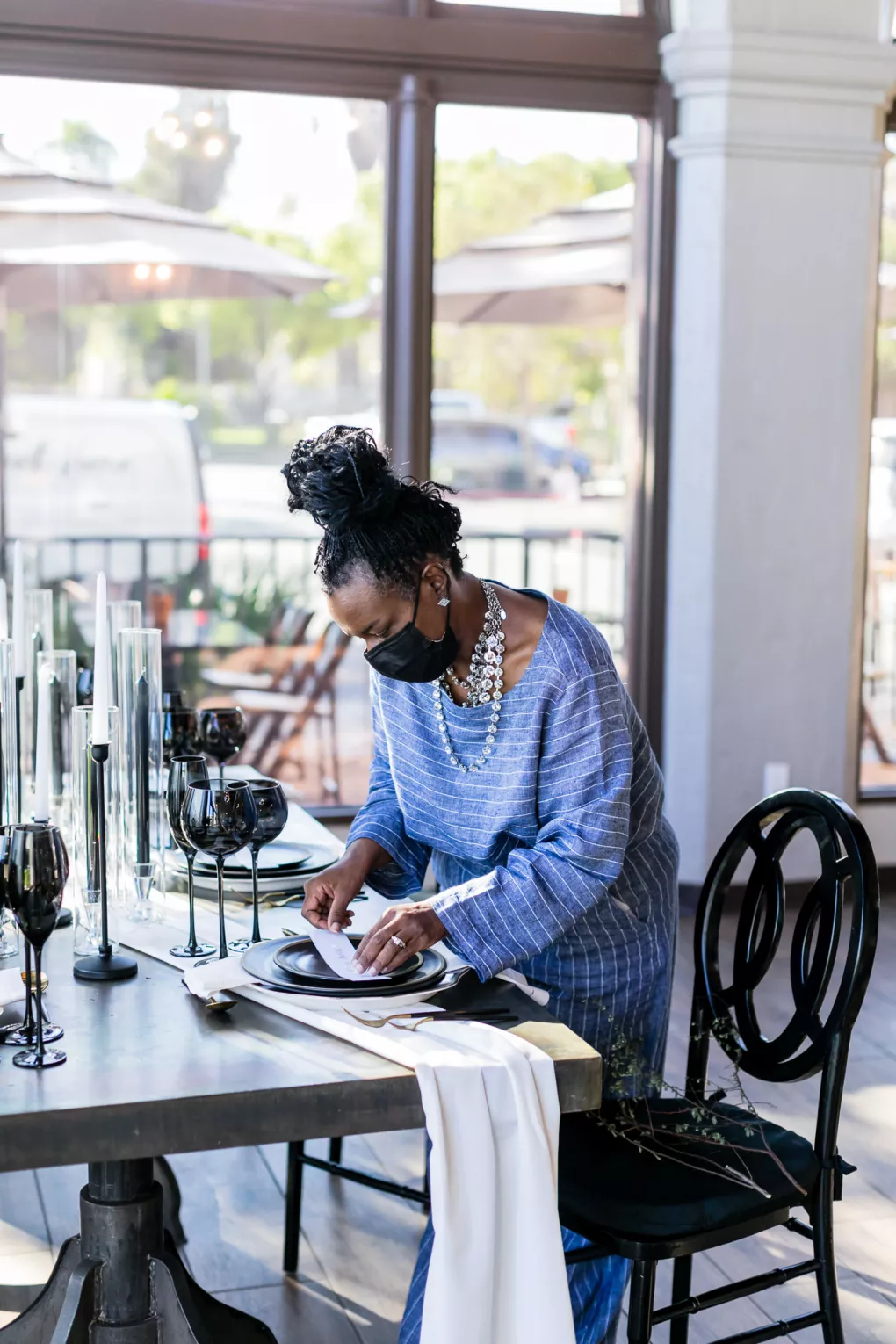
4. Dining Out
“Food and desserts are always a fantastic experience,” says Bowers. “Sharing foods that are home to you will put a smile on your guest’s face!” If this is a key feature in your planning, be sure to choose a venue that allows an outside caterer or one that is proficient in your cuisine. And keep in mind that not all guests have an adventurous palate. “For our Nigerian wedding, we had an authentic dinner of jollof rice, egusi soup, pounded yams, moi-moi, puff-puff, meat pies and fried plantain, as well as a more traditional seafood meal,” says Bowers. If dinner isn’t “on the table,” think about having a dessert table of your country’s specialties or create parting favors of your favorite treats.
5. The More You Know!
Consider hiring a speaker who is versed in the country’s traditions to educate guests, whether it be explaining balancing bread on your shoulders at an Armenian reception or encouraging everyone to take part in the famed money dance (also known as the dollar dance and the apron dance). Signage is another way to keep guests informed of unique traditions, says Bowers. “The Nigerian wedding was filled with important symbols and traditions, such as the aso-ebi, kola nut, the dowry, money spray, the bank and palm wine ... and many were subtle, so we created signage in various areas of the celebration so that guests could learn more.”
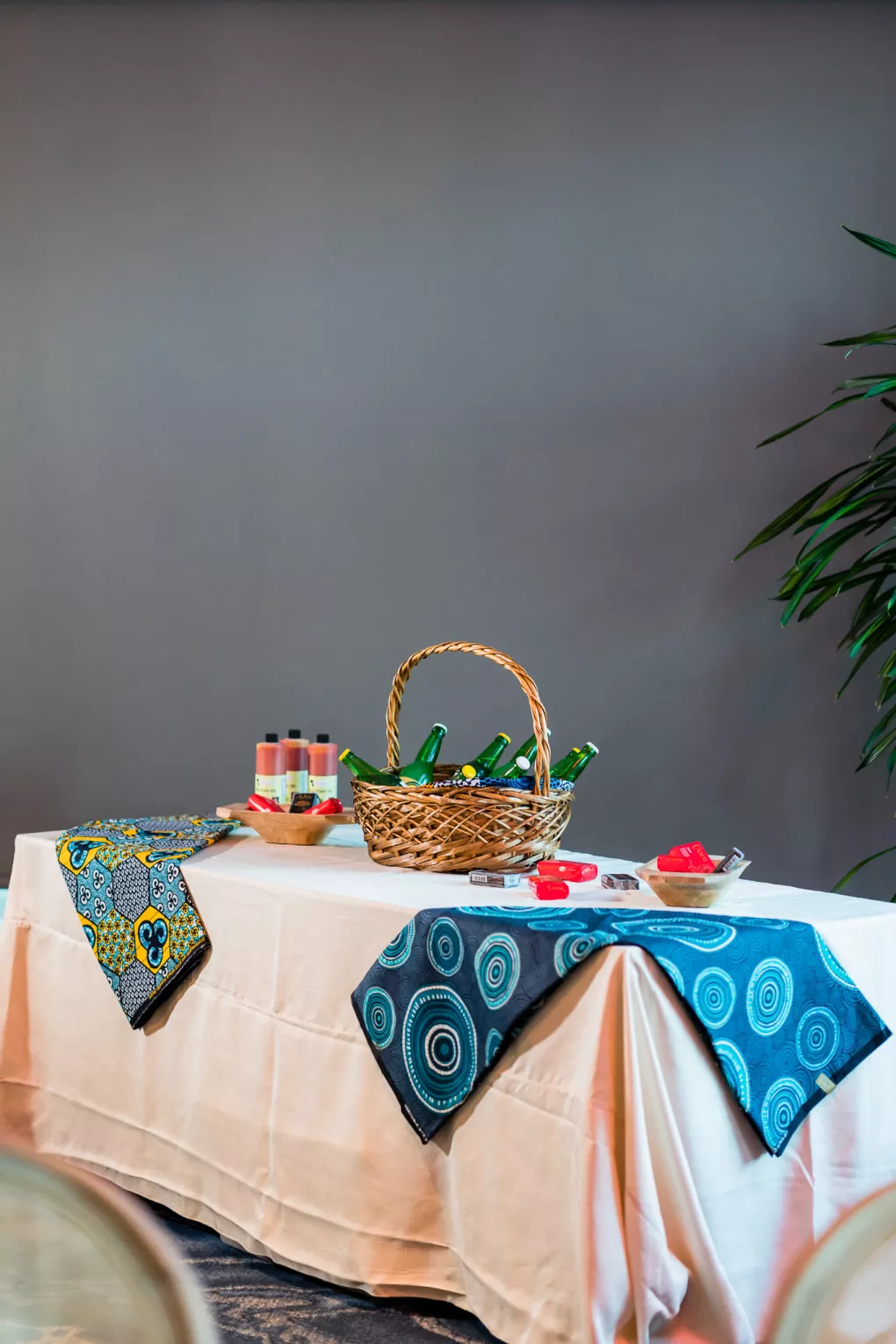
6. Ceremonial Moments
Incorporating traditions from their home country is important to many couples. Take, for example, the wedding lasso in Latino nuptials. This wreath of rosary beads or flowers is draped around the couple’s shoulders in a figure eight to mimic the infinity sign, symbolizing eternity.
7. Bridge the Distance
Including family is a must, but often members are not able to make the trip across the world. However, if we learned one thing during the pandemic, it’s that technology is a great alternative to attending in person. And you can make it a party that also incorporates traditions from afar. “In our Nigerian wedding, they had a ceremony in their hometown village that started the morning of the celebration that was cast over Zoom,” says Bowers. Meanwhile, the bride, the groom and the guests were all sent links to experience the beginning of their nuptial celebration.
